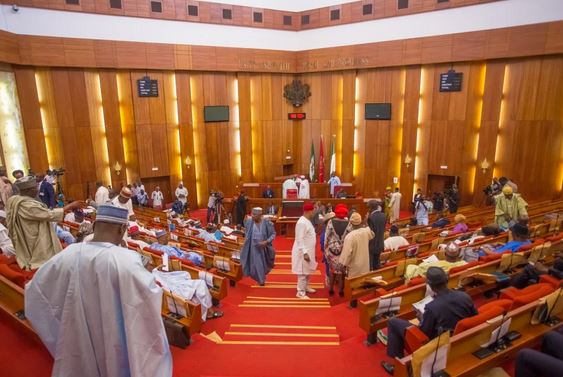By
Otunba (Dr.) Abdulfalil Abayomi Odunowo
Since Nigeria returned to democratic rule in 1999, a staggering ₦2 trillion has been earmarked for constituency projects initiatives designed to enhance the lives of citizens in every federal constituency. Despite this monumental investment, much of the populace remains disenchanted, questioning the tangible benefits of these funds. The reality is stark: essential services such as boreholes and health centers often stand dilapidated, and empowerment programs come and go with little evidence of sustainable progress. Why is this the case? The execution framework is flawed, leaving communities disconnected from the very projects intended to uplift them.

The structural weaknesses in the current model are glaring. Legislators, with no legal mandate for project execution, operate in a murky space of influence over contractors and sites. Ministries and agencies, often distant from the communities they serve, lack the local presence or vested interest necessary for effective implementation. As a result, independent entities such as the Independent Corrupt Practices and Other Related Offenses Commission (ICPC) and BudgIT’s Tracka have documented hundreds of untraceable or abandoned projects. Where projects are carried out, they frequently suffer from poor quality and minimal community input. This has transformed what should be a tool for national empowerment into an emblem of public sector waste and inefficiency.
The Asiwaju Ahmed Tinubu Support Group (AATSG) believes it is time to pivot towards a grassroots-oriented reform that returns constituency projects to the communities they are designed to serve. Our reform vision is clear and actionable:
1. *Decentralized Local Governance:* Local governments must take direct responsibility for implementing constituency projects within their jurisdictions. This shift ensures that those closest to the challenges can design suitable solutions.
2. *Empowered Community Development Structures:* Community Development Committees (CDCs) and Community Development Associations (CDAs) must be mandated to identify, monitor, and approve every project before its inclusion in the national budget and prior to final payment. This ensures that community needs, rather than political whims, dictate project selection.
3. *Transparent Accountability Registers:* Each local government should maintain a public “Community Development Register” listing all approved projects, associated costs, contractors, and their completion statuses. Such transparency can illuminate any ghost projects and promote accountability among all stakeholders.
These proposals harmonize perfectly with President Bola Ahmed Tinubu’s Renewed Hope Agenda, which emphasizes decentralization, local empowerment, and a commitment to accountable governance.
*The Burgeoning Benefits:*
– *Transparency:* With CDC/CDA oversight, ghost projects become a thing of the past, fostering trust in the system.
– *Operational Efficiency:* Local councils can mobilize resources quickly, employ local labor, and guarantee ongoing project maintenance.
– *Equity in Development:* Every ward and community can genuinely voice its requirements, leading to targeted interventions rather than distant, uninformed assumptions.
– *Accountability to Citizens:* Local communities can physically verify the projects their representatives propose and execute, thereby enhancing citizen engagement and communal ownership of development initiatives.
When communities take the reins in prioritizing their needs be it a health post, a road, solar lighting, or a vocational training hub they also safeguard their investments. This approach is how governance regains legitimacy and serves the public good effectively.
*A Call for Legislative Courage:* It is imperative for the National Assembly to demonstrate steadfastness and patriotism by reforming the existing Zonal Intervention Project (ZIP) model. Constituency projects must transition from political favors to citizen-driven development tools. Legislators can maintain their influence by being accountable for real impacts rather than mere patronage.
The philosophy of the Renewed Hope journey teaches us that leadership is synonymous with service, and true service must yield measurable improvements. Empowering local governments, CDCs, and CDAs is not a reduction of power; it represents a return to shared responsibility and visible results.
Two trillion naira later, Nigeria faces an all-important realization: development cannot be achieved merely through financial allocation; it requires active participation. By entrusting local governments and communities with the capacity to guide project selection, execution, and verification, constituency projects can finally realize their intended promise.
The Asiwaju Ahmed Tinubu Support Group (AATSG) stands ready to collaborate with the Presidency, the National Assembly, and the Association of Local Governments of Nigeria (ALGON) to actualize this transformative reform a reform that will convert the notion of “Zonal Intervention” into a vehicle for Renewed Hope at the grassroots level. Together, we can foster a future that resonates with the needs of the Nigerian people, ensuring progress and prosperity for all.
OTUNBA (DR.) ABDULFALIL ABAYOMI ODUNOWO, D.SC (H.C.) IS NATIONAL CHAIRMAN OF THE ASIWAJU AHMED TINUBU SUPPORT GROUP (AATSG)
DATE: THURSDAY, 13TH NOVEMBER, 2025
EMAIL: [email protected]
PHONE: +234 905 353 5322
WEBSITE: WWW.AATSG.ORG.NG

